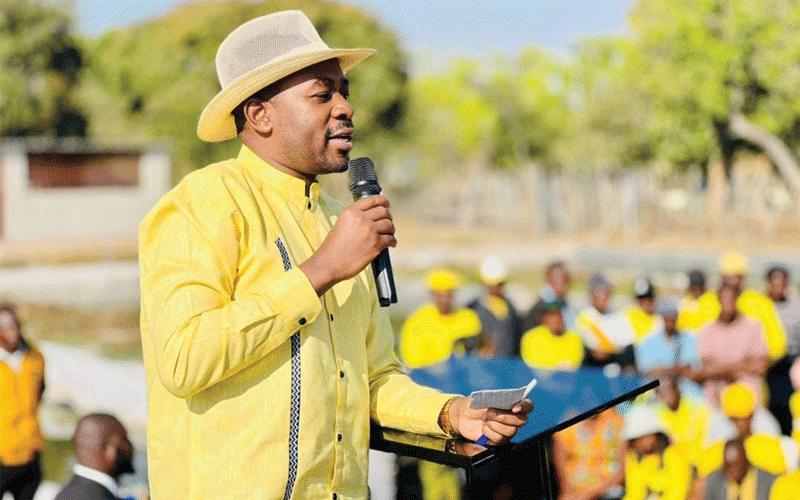
BEING Zimbabwean must be difficult, especially if you are among those who firmly believe that the ruling Zanu PF party will eventually lose an election, fall from grace, and be overthrown by the opposition. Observing what has largely transpired in the last five months following the August elections must be heartbreaking.
For those who have invested in opposition parties as agents of change, the months since the August elections have been nothing but heartbreak.
The leadership of the opposition, particularly the Citizens Coalition for Change (CCC), a political party led by Nelson Chamisa, has claimed that the elections were “stolen” due to numerous irregularities.
This time, unlike in the past, there was no legal case on the claim that the elections were “rigged”.
The only evidence supporting the argument comes from reports from multiple observer missions that pointed out certain anomalies that may have compromised the election’s legitimacy.
This is not, however, a novel tale; rather, it has become part of the post-election template, with the court appeal serving as the lone missing link.
Otherwise, the country went back to business-as-usual mode soon after the election results were announced, and the inauguration concluded.
Or is it business as usual at all? Perhaps not. Whatever the opposition has won in the last elections has been decimated by recalls by Sengezo Tshabangu, an self-proclaimed interim secretary-general of the CCC, who has recalled multiple elected Members of Parliament and councillors, setting up another round of by-elections ahead of the holiday season.
- Young vocalist making southern Africa dance
- Chamisa party defiant after ban
- Village Rhapsody: How Zimbabwe can improve governance
- News in depth: Partisan police force persecutes opposition, shields Zanu PF rogue elements
Keep Reading
A significant threat exists for the 76 National Assembly, 13 senate and several council seats.
The influence of the opposition voices on these platforms will be severely diminished if the ruling party wins a few of these seats.
The key question for those who have supported and contributed to opposition politics is how this occurred under their watch?
What does this say about those whom the country has always considered to be intellectuals, among them some of the brightest minds in law?
Or perhaps they are just riding the opposition horse because of its advantages rather than considering the bigger national picture of the change agenda?
How did Tshabangu outclass the opposition as if it didn’t exist? Or perhaps, it’s possible that those who raised concerns about the lack of structures and a constitution in the CCC party were right after all, in which case the CCC leadership was perhaps foolish to allow such a huge loophole to exist.
Although it is common practice to blame the ruling party, it does not owe the opposition any favours in any manner because it has a responsibility to itself.
It will be happy to win some of the seats from the opposition in the forthcoming by-elections.
As if a “stolen election” in August 2023 and “stolen” seats in the national assembly, senate and councils via Tshabangu thereafter was not enough, Finance minister Mthuli Ncube has just presented a national budget that projects expenditure to spike to ZWL$58,2 trillion in 2024, from ZWL$4,3 trillion this year.
The burden for financing such a huge budget has been placed on the shoulders of the citizens. The budget expects tax revenue to more than double to ZWL$51,2 trillion.
The proposed “wealth tax” seems to target the wealthy from which funds are expected to be raised to fund infrastructural development.
“In order to ensure that every person contributes to the fiscus in line with their levels of income, I propose to introduce a wealth tax at a rate of 1% of the market values of residential properties with a minimum value of US$100 000.
Resources derived from the levy will be used for urban infrastructural development, in particular roads, water, sewage systems and community health centres,” Ncube noted.
Urban infrastructural development is simply targeting to weaken the CCC further, which has won in most of the towns and cities in the last elections.
The budget proposal is not only targeting the wealthy. There is a proposal to tax micro and small enterprises and licensing traders ostensibly to restore the supply chain from the producers down to the retailer.
So small-to-medium-scale businesses are not likely to be spared as the intention is to force informal traders to regularise, formalise and pay tax.
This move favours the government and the rich than the poor and if enforced most small to medium businesses will either fold, merge, or be forced to increase the prices of goods and services to survive.
On the other hand, at face value, a policy statement that targets the wealthy attracts applause from low-income earners. But is it the case?
Most of the wealthy have more than one house and property, with the rest rented out to tenants either as residential or business premises.
Because they are rich, they will just pass on the tax to tenants, a scenario that may see rentals spiking to accommodate the new tax regime.
That is not the only challenge. Property prices in Zimbabwe are over-inflated and the majority of the medium to low-density houses are pegged at over the US$100 000 mark.
This means that there is likely to be a property devaluation, or the market will be flooded with properties on sale as people struggle to sustain the required taxes.
These are merely coping strategies used by regular people in response to a circumstance. The National Assembly, where the budget is meant to be discussed and such a proposed budget opposed and rejected, would have been the real place for the solution.
However, this is not the case because the opposition did not have enough members to block the finance minister's plans. It doesn’t help, the recalls have severely reduced the numbers they were able to secure following the elections in August 2023.











